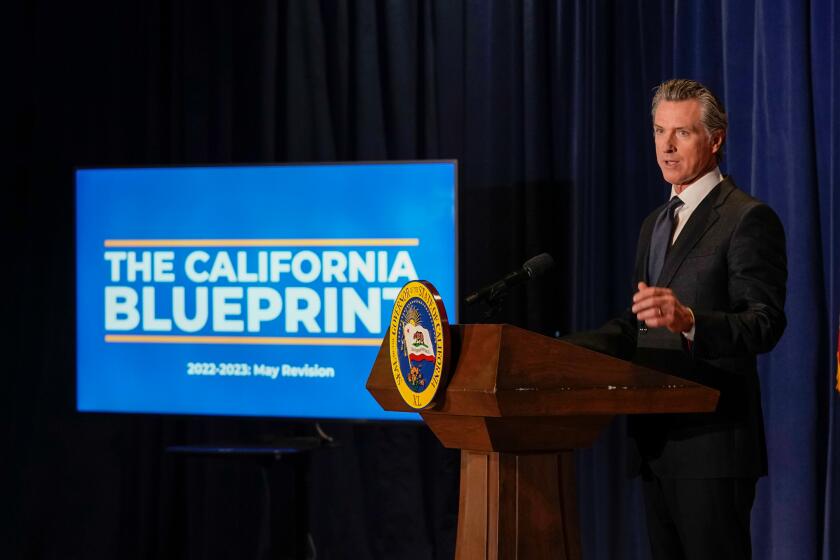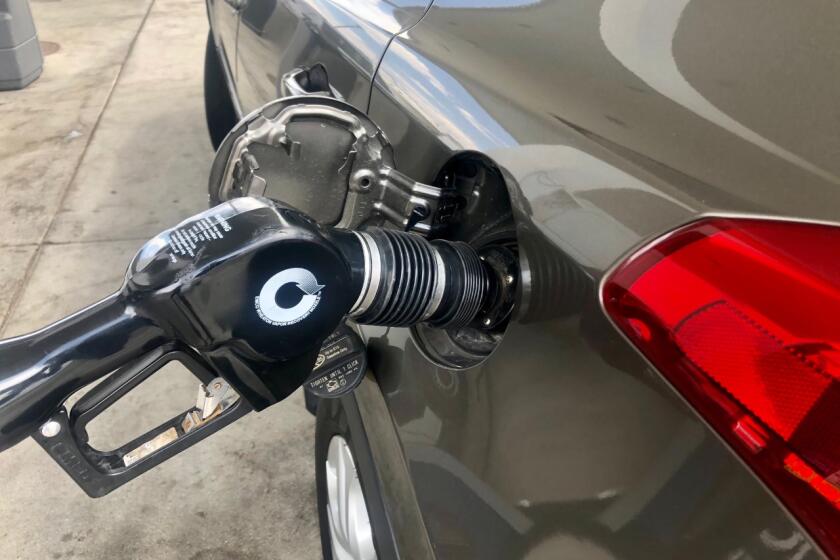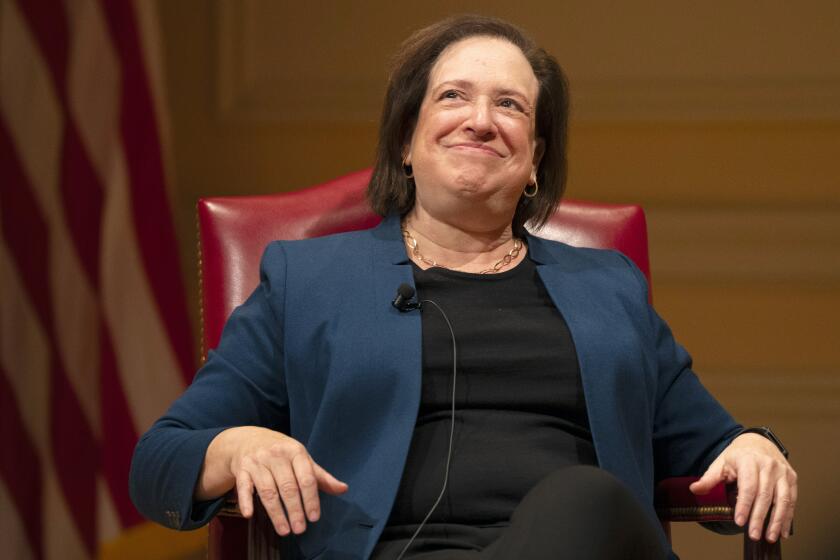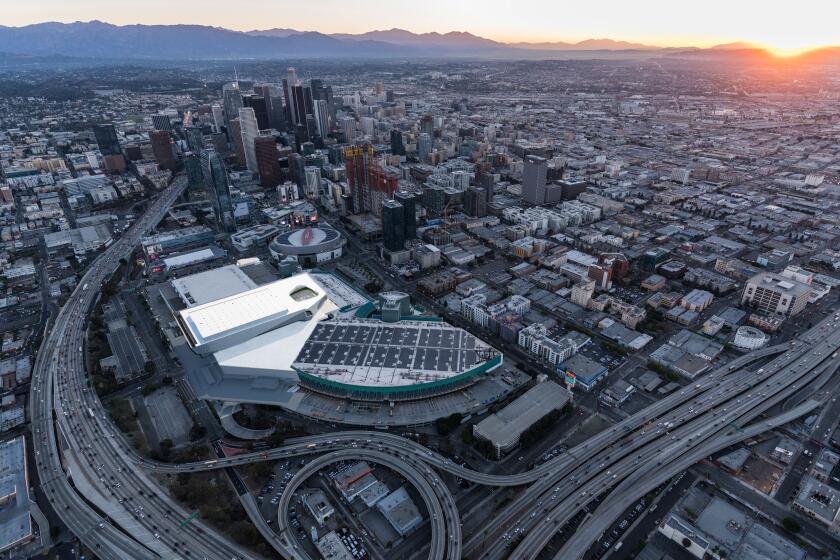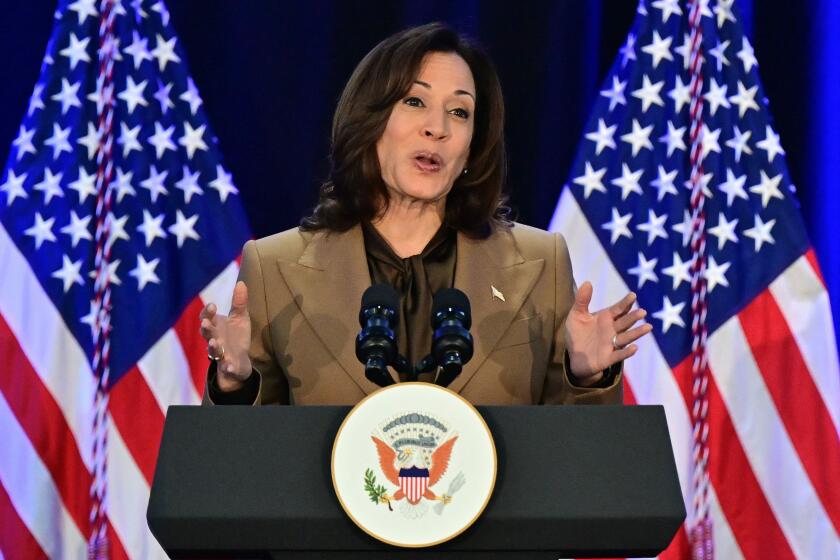California lawmakers approve preliminary budget; still no deal on gas rebates
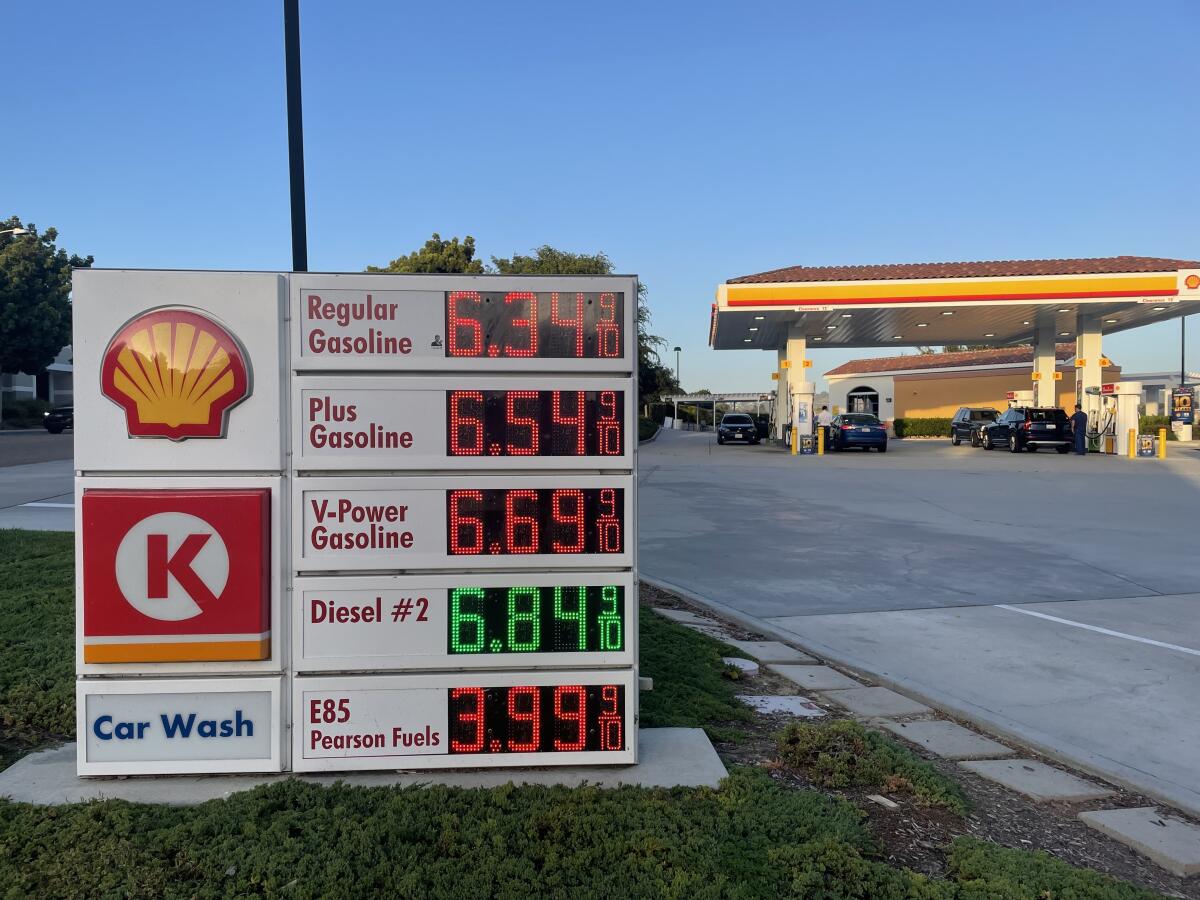
The California Legislature on Monday sent Gov. Gavin Newsom a preliminary state budget plan totaling more than $300 billion, a framework that includes $8 billion in tax rebates but could change once a final deal is struck with Newsom.
While negotiations between the governor and Democratic legislative leaders continue, the spending plan approved by the state Senate and Assembly is sufficient to meet a constitutional deadline of June 15 for lawmakers to avoid forfeiture of their paychecks.
Lawmakers expect to land a budget deal with Newsom later this month and then amend the placeholder budget with a final spending plan.
“Today, the Senate and the Assembly passed a budget that puts California’s wealth to work for individuals, families, and businesses throughout our state,” Senate President Pro Tem Toni Atkins (D-San Diego) and Assembly Speaker Anthony Rendon (D-Lakewood) said in a joint statement. “We look forward to working with the governor in the coming days to ensure we have a responsible budget in place for the start of the fiscal year that delivers prosperity and strengthens the future.”
The plan would devote billions to an inflation relief package, drought and wildfire conditions, healthcare plan subsidies and higher school funding.
Newsom and lawmakers share many budget priorities, such as expanding the state’s Medi-Cal healthcare programs to all income-eligible Californians — regardless of immigration status — no later than Jan. 1, 2024. The Democrats also broadly agree on spending $1.5 billion over two years on immediate housing solutions for individuals experiencing homelessness and mental illness.
But Newsom and legislators remain at odds over the amount of funding to dedicate to other key services. With economists warning of a looming recession, lawmakers and the governor also disagree about how much should be spent on one-time expenses or ongoing services — programs that could have to be cut in the event of a future economic downturn.
Even in the face of a projected $97 billion surplus through next summer, few budget items will receive as much attention this year as negotiations over a multibillion-dollar tax rebate.
The legislative budget provides no resolution to the stalemate over how much money the state should return to residents and who should receive the payments as Californians feel the sting of high gas prices and rising inflation.
The Senate and Assembly’s budget calls for returning $10 billion to Californians, with $8 billion set aside for rebates, $1.3 billion for small businesses and nonprofits and $600 million in tax credits for the state’s lowest-income residents and workers who pay union dues.
The $8 billion for rebates largely mirrors the proposal legislative leaders put forward in March to provide relief for high gas prices and other rising costs due to inflation. The Legislature’s budget would provide $200 per taxpayer and each dependent with adjusted gross income limits of $125,000 for individuals and $250,000 for joint-filer households. Additional funds would be set aside for low-income Californians who don’t owe state income tax.
Newsom wants to provide more money in rebates to more Californians. The governor’s May budget plan called for $400 for each registered vehicle owner, with a maximum of $800 for anyone with more than one vehicle. Newsom’s rebates, which would total $11.5 billion, would not include any income limits but would exclude vehicles over a certain value. His plan calls for an additional $750 million for free or reduced public transit.
Erika Li, chief deputy director of the Department of Finance, testified in an Assembly budget committee hearing Monday morning about the Newsom administration’s concerns with the structure of the Legislature’s relief plan.
“It will take longer to implement and not reach as many Californians when compared to the governor’s refund proposal,” Li said. “Given the rising costs of gas and food, our priority is to have a relief program that moves with speed and benefits as many Californians as possible.”
Gov. Gavin Newsom and lawmakers have made little progress toward resolving their differences over how much money Californians should receive to blunt the burden of rising costs at the pump.
Lawmakers have criticized Newsom’s plan for its inclusion of rebates to the state’s wealthiest residents who they argue would not benefit from the money as much as lower-income residents.
Republican lawmakers criticized Democrats for not delivering relief quickly despite bipartisan support for swift action. Three months have passed since Newsom and lawmakers began proposing rebates.
“The average family in California is paying over $8,000 more for the same amount of goods as last year. Gas prices are crushing family budgets,” said Assemblyman Vince Fong (R-Bakersfield), vice chairman of the Assembly Budget Committee. “There’s nothing in today’s proposal to bring immediate relief for Californians.”
Li also testified about the administration’s worry “that the Legislature’s budget commits an unsustainable amount to ongoing expenditures.” Li detailed an additional $5.6 billion in ongoing expenses by 2025-26 in the Legislature’s plan compared to that of Newsom.
“Dedicating such a large amount toward new and expanded ongoing programs is concerning,” Li said. “Should economic conditions continue to worsen in the near future, there will be a need to scale back or even cut vital programs.”
More to Read
Start your day right
Sign up for Essential California for news, features and recommendations from the L.A. Times and beyond in your inbox six days a week.
You may occasionally receive promotional content from the Los Angeles Times.
